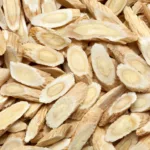How to Manage Rheumatoid Arthritis Fatigue – A Complete Guide
Living with rheumatoid arthritis (RA) can be challenging, especially when it comes to fatigue. But don’t worry, you’re not alone. We’re here to guide you through practical tips to manage your energy levels and reclaim your day-to-day life.
Rheumatoid arthritis (RA) doesn’t just affect your joints; it can cause fatigue that’s hard to explain unless you’ve experienced it. Fatigue in RA can be overwhelming and often impacts your quality of life. The good news is that there are ways to manage it. With the right strategies, you can take control of your energy levels and improve your overall well-being.

What is Rheumatoid Arthritis Fatigue?
RA is an autoimmune condition where your body’s immune system attacks its own tissues, mainly affecting your joints. But RA doesn’t stop there—it also causes systemic inflammation, which can lead to fatigue. This isn’t just being a little tired; it’s a deep, all-encompassing exhaustion that makes even simple tasks feel exhausting. It’s often described as feeling “drained” or like you’re carrying a heavy weight all day long.
The fatigue you experience with RA can be worse during flare-ups, but it can also linger even when your joint symptoms are under control. This makes it important to address both the physical and emotional aspects of RA fatigue.
How to Manage Rheumatoid Arthritis Fatigue
1. Understand Your Energy Levels
One of the first steps in managing RA fatigue is understanding your energy patterns. This will help you figure out when you tend to feel the most exhausted and when you have more energy to tackle tasks. For example, if you’re a morning person, try to do your most demanding activities early in the day. Conversely, if you feel more energetic later, adjust your routine accordingly.
It’s also a good idea to keep a fatigue diary. Tracking your symptoms can help identify triggers and patterns. Over time, this can give you a clearer picture of your energy levels and how best to manage them.
2. Work with Your Doctor on RA Treatment
Fatigue is often a result of inflammation and disease activity, so it’s crucial to manage your RA effectively. The right treatment plan can make a significant difference in reducing fatigue. Disease-modifying antirheumatic drugs (DMARDs) and biologics are commonly prescribed to control RA symptoms and reduce inflammation. By controlling the underlying disease, you might notice an improvement in your energy levels.
If you’re not already working with a rheumatologist, consider scheduling an appointment to discuss your current treatment plan and how it may be impacting your fatigue.

3. Prioritize Sleep
Fatigue can be worsened by poor sleep, which is common in people with RA. Pain and discomfort can make it hard to fall asleep or stay asleep. However, good-quality sleep is essential for managing energy levels.
Here are some tips to improve your sleep hygiene:
- Create a Sleep-Friendly Environment: Make sure your bedroom is dark, quiet, and cool.
- Stick to a Routine: Go to bed and wake up at the same time each day to regulate your body’s internal clock.
- Manage Pain Before Bed: Take your prescribed pain medication or use heat or cold therapy to reduce pain before bedtime.

4. Balance Activity and Rest
It’s important to find a balance between staying active and getting enough rest. Overdoing it physically can worsen fatigue, while too much rest can leave you feeling sluggish. Listen to your body and pace yourself throughout the day.
Consider breaking up tasks into smaller chunks, so you don’t overwhelm yourself. Take short breaks between activities, and don’t be afraid to ask for help when needed. The goal is to avoid pushing yourself too hard and to give yourself permission to rest when you need it.
5. Eat a Balanced Diet
A well-balanced diet can help support your energy levels. When managing RA fatigue, focus on foods that fight inflammation and support your overall health. Omega-3 fatty acids, found in foods like fatty fish, walnuts, and flaxseeds, can help reduce inflammation. Antioxidant-rich foods such as berries, leafy greens, and nuts are also excellent choices.
Stay hydrated, too! Dehydration can worsen fatigue, so make sure to drink plenty of water throughout the day.
6. Consider Supplements
Some supplements may help with managing fatigue related to rheumatoid arthritis. For example:
- Vitamin D: RA patients often have lower levels of vitamin D, which can contribute to fatigue. Talk to your doctor about getting tested and whether supplementation could help.
- Iron: If you’re anemic, it can make fatigue worse. Consider getting your iron levels checked to see if supplementation is necessary.
- Coenzyme Q10 (CoQ10): Some people with RA find that CoQ10 supplements help with energy levels, although more research is needed.
Always consult your doctor before adding any supplements to your routine to ensure they’re safe and effective for you.

Conclusion
Managing fatigue from rheumatoid arthritis can feel like a constant battle, but with the right strategies, it’s possible to regain some control. By understanding your energy levels, managing your RA treatment, prioritizing sleep, balancing activity and rest, eating a nutritious diet, and finding ways to manage stress, you can reduce the impact of fatigue on your life.
Remember, you don’t have to do it alone—consult your healthcare provider, lean on your support network, and take small steps each day to improve your quality of life.
Appendices
FAQs
- What is the best way to manage fatigue caused by rheumatoid arthritis? Managing RA fatigue involves a combination of medication, lifestyle changes, and self-care practices like proper sleep, diet, and stress management.
- Can exercise help with RA fatigue? Yes, moderate, low-impact exercise can improve circulation, reduce stiffness, and boost energy levels. Always start slow and adjust based on how your body feels.
- Is fatigue a common symptom of rheumatoid arthritis? Absolutely. Fatigue is one of the most common and debilitating symptoms of RA, often due to inflammation and the body’s response to disease activity.
- Can diet improve fatigue in RA? A balanced diet rich in anti-inflammatory foods can help manage fatigue. Focus on omega-3 fatty acids, antioxidants, and staying hydrated.
- Should I take supplements for RA fatigue? Some supplements, like vitamin D or CoQ10, may help, but it’s crucial to discuss them with your doctor before adding them to your routine.
References
- American College of Rheumatology. (2023). Understanding Rheumatoid Arthritis and Fatigue. Read more
- Smith, L., & Johnson, P. (2022). Managing Chronic Fatigue in Rheumatoid Arthritis. *Journal of Rheumatic Diseases*, 30(4), 45-60.
- National Institute of Arthritis and Musculoskeletal and Skin Diseases (NIAMS). (2024). Fatigue in Rheumatoid Arthritis. Read more
Disclaimer
The information provided in this article is for educational purposes only and does not substitute for professional medical advice. Always consult with your healthcare provider regarding the management of rheumatoid arthritis and fatigue. Individual needs may vary, and professional guidance is essential for personalized care.














